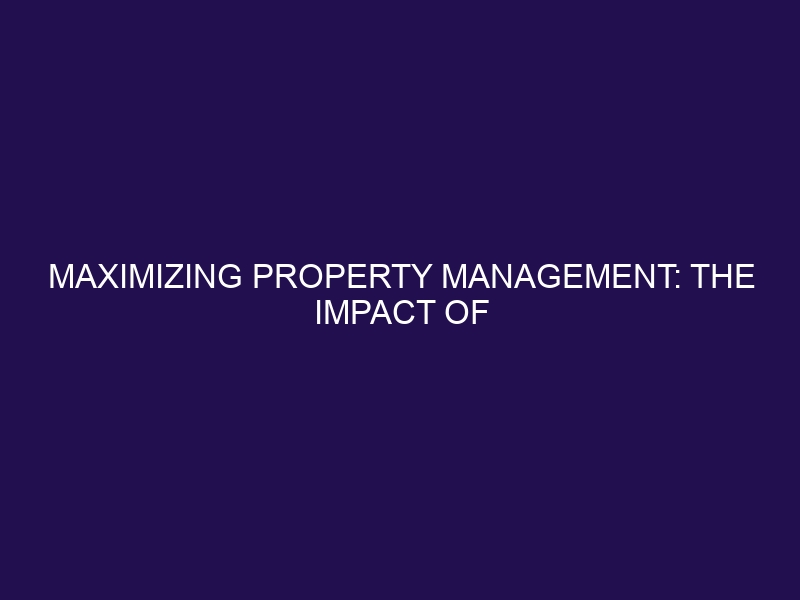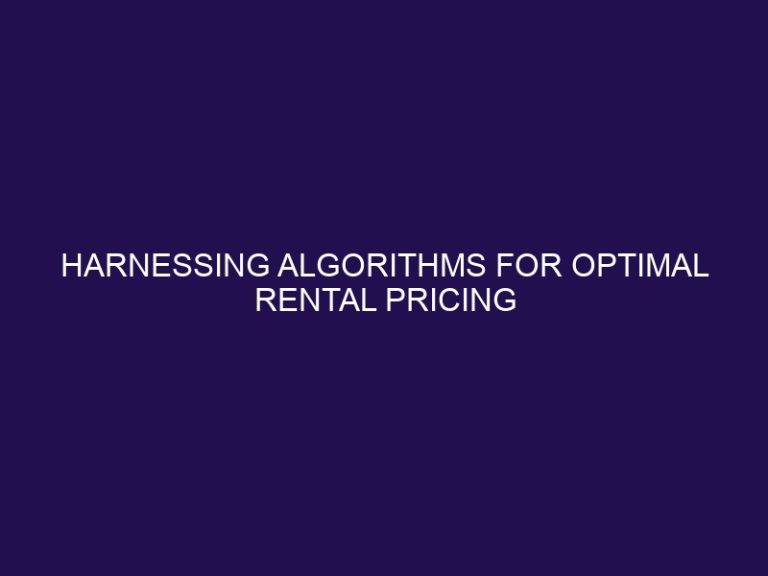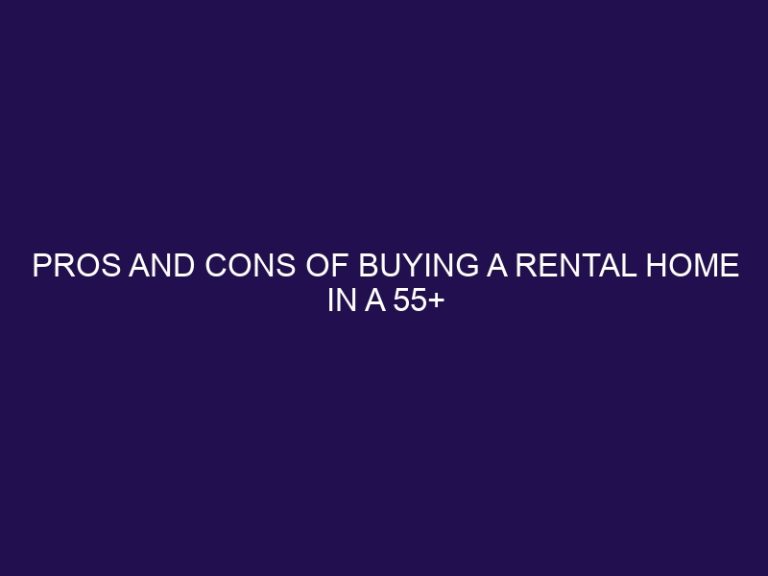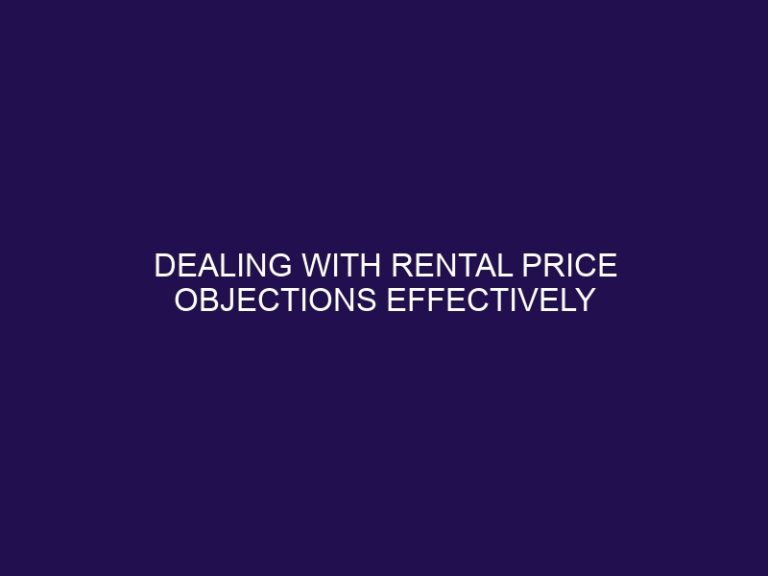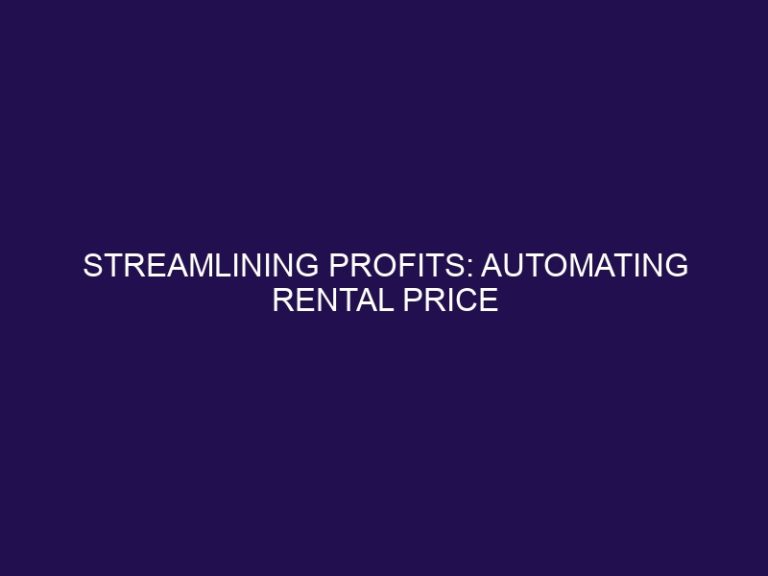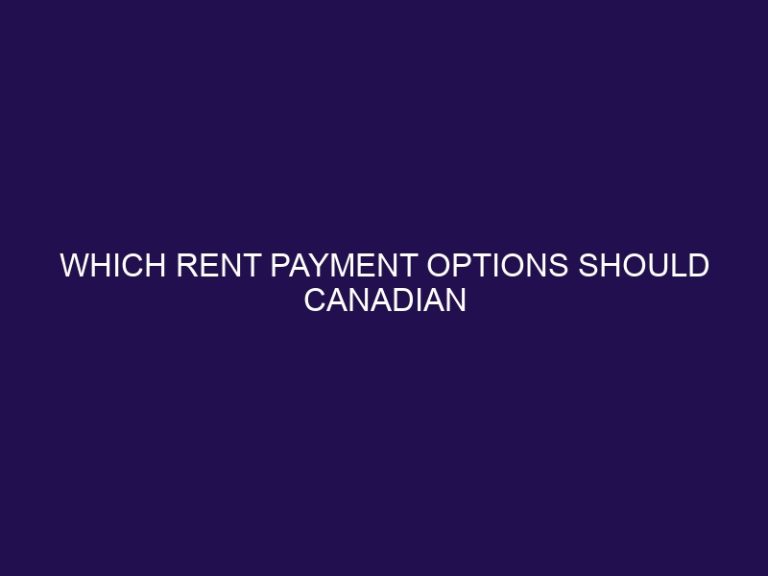Maximizing Property Management: The Impact of Local Regulations
Local regulations play a crucial role in shaping the landscape of property management, impacting everything from maintenance practices to resident notifications. In this comprehensive guide, we will delve into the intricate web of property management regulations, exploring the importance of compliance, the role of legal experts, and best practices for documentation.
Understanding the impact of local regulations on property management is essential for property owners and managers to navigate the intricacies of government regulations and commercial real estate. We will also address common FAQs, provide resources for staying updated on regulatory changes, and offer insights on related topics. Join us as we explore the dynamic intersection of local regulations and property management, and gain valuable knowledge to ensure regulatory compliance and successful property maintenance.
Key Takeaways:
The Impact of Local Regulations on Property Management
The impact of local regulations on property management is significant and multifaceted, requiring comprehensive understanding and proactive compliance strategies to navigate the complex landscape of property management regulations.
Navigating the intricate network of property management regulations involves staying abreast of zoning laws, building codes, environmental regulations, and landlord-tenant statutes. Each facet of property management is influenced by a distinct set of regulations, from tenant rights and lease agreements to health and safety standards. Therefore, property managers must adopt a proactive approach, fostering strong relationships with local authorities and legal advisors to ensure adherence to the ever-evolving property management regulations.
Understanding Property Management Regulations
Understanding property management regulations entails a comprehensive grasp of the diverse legal frameworks, including local policies, zoning laws, property taxes, building codes, and permit processes, influencing commercial real estate operations.
Talk to a Legal Expert
Seeking guidance from a legal expert is essential for navigating the intricacies of property management regulations, ensuring compliance with federal and local requirements to safeguard the interests of investors, homeowners, and stakeholders in the dynamic real estate market.
Legal experts play a crucial role in not only interpreting complex property laws but also in providing strategic advice to property managers and investors. By staying updated on the ever-evolving regulations and legal precedents, they can help mitigate risks and ensure that property management practices align with the latest legal standards.
Their guidance is instrumental in drafting and reviewing contracts, resolving disputes, and representing clients in legal proceedings if necessary. Their expertise enhances the overall credibility and protection of the property management industry, thereby fostering trust and confidence among stakeholders.
Importance of Enhanced Property Maintenance
Enhanced property maintenance is pivotal in upholding compliance with property management regulations, addressing the requirements set forth by zoning laws, building codes, and permit processes to ensure the optimal condition and functionality of commercial real estate assets.
By proactively maintaining properties, owners and managers can mitigate the risk of non-compliance, potential fines, or even legal actions. Regular maintenance not only enhances the safety and habitability of the property but also contributes to the overall long-term value. It also plays a crucial role in sustaining a positive reputation and tenant satisfaction, ultimately supporting the financial performance of the asset.
Adherence to regulatory standards demonstrates a commitment to community and environmental well-being, further bolstering the property’s standing.
Documentation Best Practices
Implementing documentation best practices is crucial for adherence to property management regulations, encompassing local policies, government regulations, and tax laws, to streamline operations and advocate for effective policy implementation within the real estate market.
By following documentation best practices, property managers can ensure that all processes and transactions are recorded accurately and in compliance with legal requirements. This not only fosters transparency and accountability but also helps in mitigating risks associated with non-compliance.
Maintaining thorough documentation can facilitate audits and inspections, demonstrating the organization’s commitment to upholding regulations.
Notifying Residents in Advance
Providing advance notice to residents regarding property management regulations is fundamental in fostering transparent and compliant practices, aligning with local policies, government regulations, and advocacy efforts within the dynamic real estate markets.
When residents are informed in advance about property management regulations, it cultivates a sense of transparency and compliance, creating a harmonious living environment. By adhering to local policies and government regulations, property managers not only build trust among residents but also contribute to a well-regulated real estate market. This proactive approach also supports advocacy efforts for fair and equitable property management practices.
Role of Property Maintenance Solutions in Regulatory Compliance
Property maintenance solutions play a pivotal role in facilitating regulatory compliance within the realm of property management regulations, addressing the multifaceted requirements set forth by building codes and permit processes to ensure the optimal functionality and longevity of commercial real estate properties.
These solutions encompass a wide range of services, including preventive maintenance schedules, regular inspections, repair and replacement of essential building components, and environmental compliance measures. By adhering to these maintenance practices, property owners and managers can significantly reduce the risks associated with non-compliance penalties and costly corrective actions.
Additionally, maintenance solutions contribute to sustaining the market value and attractiveness of commercial properties, safeguarding the investment potential and viability in the competitive real estate landscape.
Government Regulations and Commercial Real Estate
Government regulations exert a profound influence on the landscape of commercial real estate, encompassing tax laws, environmental protection regulations, and amendment processes that significantly shape policy advocacy and market dynamics.
These regulations play a pivotal role in defining the investment landscape and guiding the decision-making process for real estate developers and investors.
Tax laws directly impact the financial viability of commercial real estate projects, dictating the level of investment, development, and profitability.
Additionally, environmental protection regulations not only influence the design and construction phases but also impact the operational costs and long-term sustainability of commercial properties.
Overview of Taxation Laws
An overview of taxation laws is essential for comprehending the fiscal framework that governs commercial real estate operations, reflecting the nuanced interplay of government regulations, market dynamics, and policy advocacy within the real estate industry.
Taxation laws play a pivotal role in shaping the financial landscape of commercial real estate, impacting investment decisions, property valuations, and operational costs. They encompass a wide array of regulations, including property taxes, capital gains taxes, and depreciation allowances, exerting a significant influence on the profitability and feasibility of real estate ventures. Understanding the complexities of these laws enables real estate stakeholders to navigate the evolving tax environment, capitalize on incentives, and mitigate potential risks.
Taxation laws are intertwined with government policies, economic trends, and industry-specific developments, necessitating a comprehensive grasp of their implications for sustainable real estate practices.
Impact of Environmental Protection Laws
The impact of environmental protection laws on commercial real estate underscores the intricate balance between regulatory compliance, market dynamics, and policy advocacy, shaping sustainable practices and industry resilience within the real estate sector.
Environmental protection laws have a profound influence on the commercial real estate landscape. They compel industry players to adhere to stringent regulations while adapting to evolving market demands, thereby driving sustainable development.
Regulatory compliance is essential for maintaining environmental standards and ensuring the long-term viability of real estate assets. Striking a balance between compliance and market dynamics is crucial for optimizing property values while meeting sustainability goals. Navigating these laws necessitates proactive policy advocacy, fostering industry resilience and promoting a harmonious integration of environmental stewardship and commercial viability.
Overall, environmental protection laws are pivotal in transforming the real estate sector towards a more sustainable and resilient future.
Understanding Amendment Processes
Understanding the nuances of amendment processes within government regulations is critical for navigating the evolving landscape of commercial real estate, reflecting the intersection of regulatory dynamics, market influences, and policy advocacy initiatives.
Amendment processes form an integral part of the regulatory framework governing commercial real estate. These processes involve the modification and refinement of existing regulations to align with the changing needs of the market and the public interest. The dynamism of market influences necessitates continuous review and adaptation of regulations to promote sustainable growth and development.
Additionally, policy advocacy initiatives play a pivotal role in influencing and shaping these amendment processes, aiming to strike a balance between economic development, environmental sustainability, and social welfare.
FAQs about Local Regulations and Property Management
Frequently asked questions about local regulations and property management provide valuable insights into the dynamic interplay of regulatory compliance, local policies, and policy advocacy within the ever-evolving real estate markets.
Navigating the intricacies of local regulations and property management is vital for real estate professionals to ensure operations abide by the local laws and regulations, enabling smooth transactions and mitigating legal risks. Understanding the zoning laws, building codes, and property tax regulations is essential for property managers and landlords to avoid potential legal repercussions.
Staying updated with the evolving local policies and engaging in policy advocacy can further safeguard interests and contribute to the sustainable growth of the real estate industry.
Subscription for Updates
Subscribing for updates on property management regulations facilitates well-considered choices and proactive compliance strategies, aligning with the evolving dynamics and policy advocacy initiatives within the real estate markets.
Staying abreast of property management regulations is crucial for property owners, managers, and investors to navigate complex legal requirements. Understanding the latest changes in regulations enables a proactive approach to compliance, reducing the risk of penalties and legal challenges. Furthermore, well-considered choices backed by up-to-date knowledge enhances operational efficiency and tenant satisfaction.
By subscribing, individuals can gain insights into legislative shifts, emerging industry trends, and best practices, give the power toing them to make strategic decisions aligned with policy changes and regulatory advancements.
Related Posts and Insights
Accessing related posts and insights on property management regulations offers valuable perspectives and industry-specific knowledge, enriching the understanding of regulatory dynamics and policy advocacy within the diverse real estate markets.
Gaining insights on the intricacies of property management regulations fosters a deeper comprehension of the evolving regulatory landscape, give the power toing real estate professionals to navigate compliance challenges effectively. Exploring diverse perspectives and best practices enhances industry-specific knowledge, providing a holistic understanding of regulatory dynamics and fostering opportunities for informed policy advocacy.
This continuous enrichment of knowledge and understanding is pivotal in navigating the complexities inherent within the real estate market.
Contact Information
For further inquiries and assistance regarding property management regulations, feel free to contact us to explore tailored solutions and proactive strategies for navigating the intricate landscape of commercial real estate and policy advocacy.
Our team is dedicated to providing comprehensive support and expert guidance to help you maneuver through the complex web of property management regulations.
Whether you’re a property owner, investor, or developer, understanding and complying with these regulations is crucial for success in the competitive real estate market. We are committed to offering personalized solutions to meet your specific needs, leveraging our extensive industry knowledge and network.
Reach out to us today to discover how we can assist you in achieving your property management objectives efficiently and effectively.
Frequently Asked Questions
What is the impact of local regulations on property management?
The impact of local regulations on property management refers to the effects that specific laws and rules have on the management of real estate properties in a particular area. These regulations can significantly impact the way property managers operate and make decisions regarding their properties.
How do local regulations affect property management decisions?
Local regulations can have a significant impact on property management decisions. For example, zoning laws may restrict the types of businesses that can operate in a particular area, which can limit the type of tenants a property manager can attract. Similarly, building codes may dictate the maintenance and safety standards for a property, which can affect the cost of upkeep and renovations.
Why is it essential for property managers to stay informed about local regulations?
Property managers must stay informed about local regulations to ensure they are complying with all laws and rules that may affect their properties. Failure to comply with these regulations can result in fines, penalties, and even legal consequences. Staying informed also allows property managers to make informed decisions and avoid any potential problems or conflicts.
What are some common local regulations that property managers must follow?
Some common local regulations that property managers must follow include zoning laws, building codes, health and safety regulations, and rent control ordinances. Other regulations may include noise ordinances, parking regulations, and occupancy limits. It is crucial for property managers to research and understand all relevant regulations in their area.
How can property managers ensure compliance with local regulations?
To ensure compliance with local regulations, property managers should stay informed by regularly checking for updates and changes in laws. They should also have a thorough understanding of all relevant regulations and establish procedures to ensure they are followed. Additionally, it is essential for property managers to maintain good communication with local authorities and seek professional assistance when needed.
What can property managers do if they have concerns about local regulations?
If property managers have concerns about local regulations, they can seek guidance from legal professionals or industry organizations. They can also attend local meetings and participate in discussions regarding proposed regulations. It is crucial for property managers to voice their concerns and advocate for their rights as property owners.

